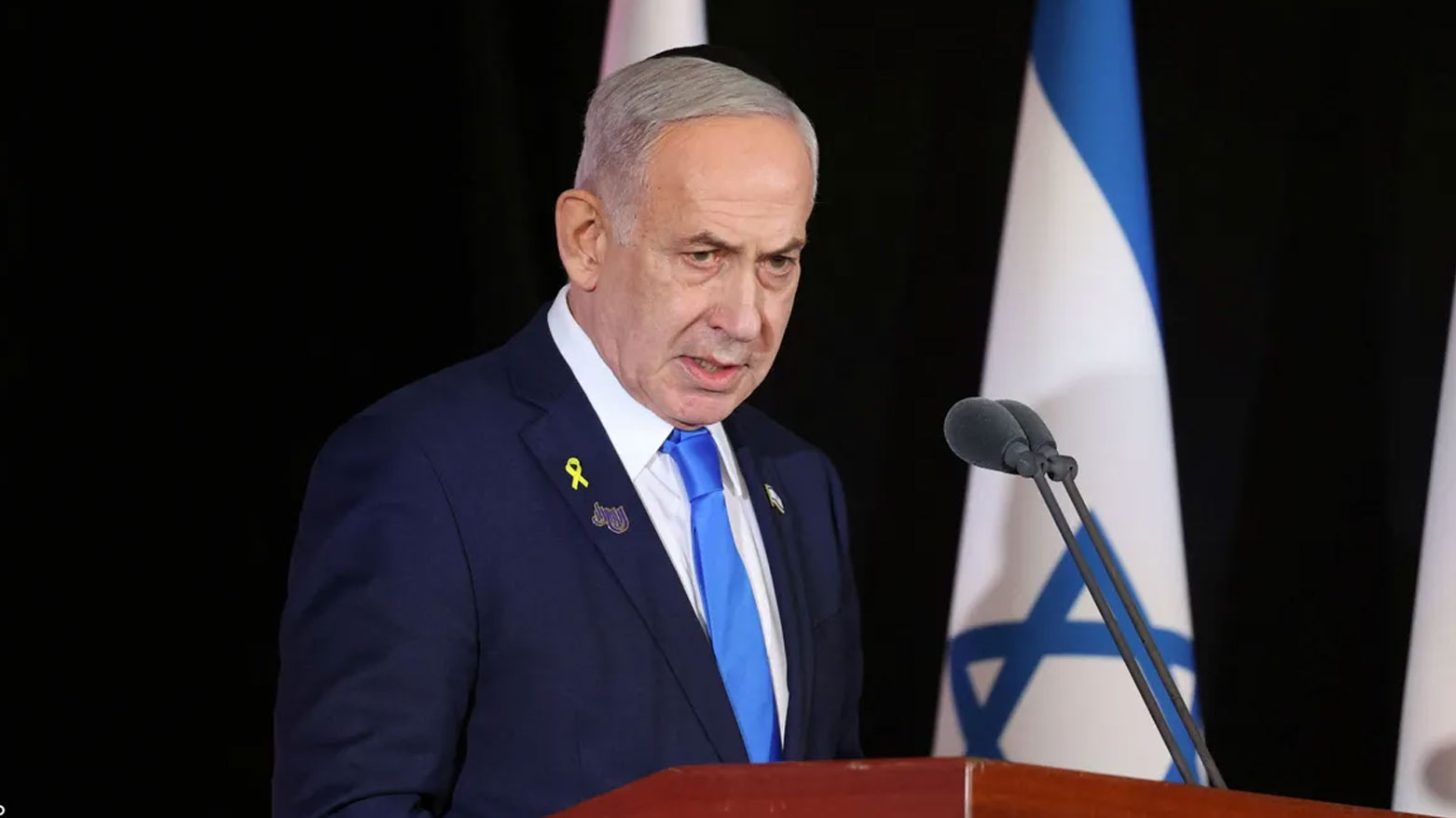Netanyahu accuses Hamas of breaching Gaza agreement and vows to respond
Israel accused Hamas of violating the Gaza ceasefire after forensic tests showed returned remains belonged to a hostage whose body was already recovered in 2023. Hamas denied the allegation, citing recovery difficulties in bomb-damaged areas.

ERBIL (Kurdistan24) — Israel on Tuesday accused Hamas of violating the cease-fire in Gaza after forensic tests showed that some of the recent bone fragments returned by the group belonged to a hostage whose body the Israeli military said it had already recovered from Gaza nearly two years ago. The episode has intensified demands in Israel for a decisive response and deepened anguish for families who say the saga of returned remains has reopened old wounds.
Israeli forensic authorities said the remains handed over late on Monday and identified as part of the sixteenth of 28 bodies that Hamas agreed to return under the U.S.-Egypt-Qatari mediated cease-fire were actually fragments of the late Ofir Tsarfati, whose body, the army says, was recovered from Gaza in a military operation about two years ago. A statement from Prime Minister Benjamin Netanyahu’s office said: “After completing the identification process this morning, it became clear that what was returned last night were remains belonging to the late Ofir Tsarfati, whose body was recovered from the Gaza Strip in a military operation nearly two years ago.”
The government said it would hold a meeting with security chiefs to discuss Israel’s response. The Forum of Families of the Hostages also accused Hamas of violating the truce, calling for “decisive measures” against the movement. In a statement the forum said: “In light of Hamas’s dangerous violation of the agreement last night… the Israeli government cannot ignore this and must not do so; decisive action must be taken against these violations.” The forum added that “Hamas knows where the hostages are, continues to act recklessly and deceives the United States and the mediators.”
Hamas denied knowledge of the locations of the remains and dismissed the accusation as “false.” Hazem Qassem, the movement’s spokesman, said Israeli bombardment over two years had rendered many sites unrecognisable. “We are committed to the cease-fire agreement and to handing over the bodies of Israeli captives… and we are working around the clock to achieve that,” he said, adding that “there are great difficulties in search and recovery operations.”
Hamas announced it intended to hand over another body on Tuesday evening — the sixteenth in the exchange — saying it had “found” remains in the path of one of the tunnels in Gaza and would hand them over at 8 p.m. Gaza time (18:00 GMT).
Hardline Israeli figures denounced Hamas and urged stronger measures. National Security Minister Itamar Ben-Gvir accused the movement of “playing” and delaying the return of other remains, declaring on X that the continued manipulation proved “this terrorist organisation remains standing.” He urged that “it is time to break it completely and forever; we must destroy it entirely.” Finance Minister Bezalel Smotrich also joined calls for punitive action, suggesting via X the re-arrest of Palestinians released under the recent exchange as a punitive measure.
The forum and the family of Ofir Tsarfati said the fragments returned on Monday night forced them to reopen their son’s grave for a third time. The forum said Tsarfati had been taken from the Nova music festival on October 7, 2023, and killed in Gaza. The family said parts of his remains had been returned previously at the end of 2023 and again in March 2024. “This is the third time we are forced to open Ofir’s grave and reinter our son,” they said. “This chapter was supposed to close in December 2023, but it never really did.”
Hamas’s denials and Israel’s forensic findings have compounded the families’ distress and intensified public pressure on the government to demonstrate firmness.
The abductions that followed Hamas’s October 7, 2023 attack on southern Israel resulted in 251 people taken captive; most have since been released, rescued or had their remains returned prior to the latest truce. The aftermath of the campaign that followed Hamas’s assault has been catastrophic for Gaza. According to figures from the Gaza health ministry — a source considered reliable by the United Nations — at least 68,531 Palestinians have been killed in the territory during Israel’s military campaign.
For many families of the hostages, the repeated returns of remains and the conflicting claims over their provenance have turned the search for closure into a prolonged ordeal. The Forum of Families of the Hostages said Tuesday that Hamas “continues to act with contempt” and that mediators had been misled, while Hamas insisted on the practical difficulties of locating and recovering remains in sites devastated by years of bombardment.
The latest developments expose the fragility of the truce and the legal and moral complexities surrounding the treatment and return of bodies in wartime. Israel has signalled it will consult security leaders before deciding how to respond, while Hamas has pledged continued cooperation with the mediated exchange despite what it describes as operational obstacles.
As both sides trade accusations, the families remain at the centre of a painful process in which forensic determinations, political calculations and emotional wounds intersect. The repeated reopening of Ofir Tsarfati’s grave illustrates how the search for truth and dignity for the dead can itself become a source of renewed trauma, even as talks and exchanges seek to produce calm.
The forensic identification that linked newly returned fragments to a body Israel says it already recovered has inflamed tensions under an already tenuous cease-fire. Calls in Israel for decisive retaliation contrast with Hamas’s insistence on logistical and technical difficulties in search and recovery. With another body due to be handed over Tuesday evening and security leaders preparing to weigh Israel’s options, the episode underscores how deeply contested narratives, unhealed wounds and the politics of mourning continue to complicate any path toward lasting respite.